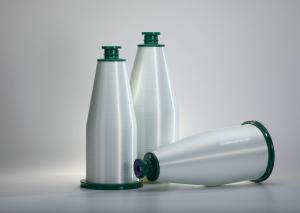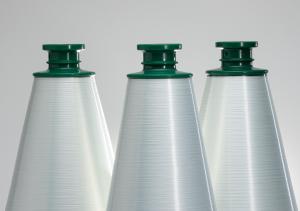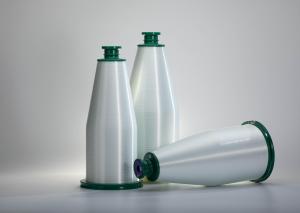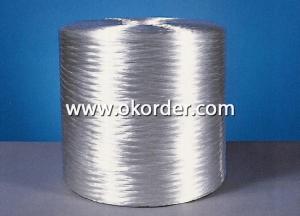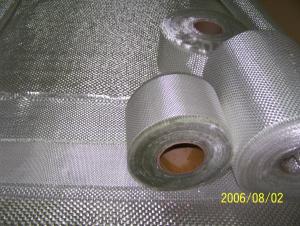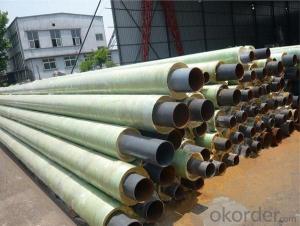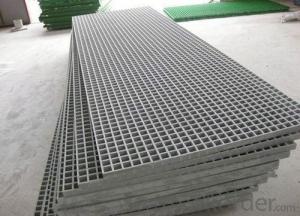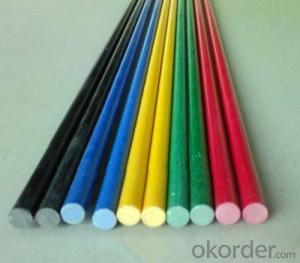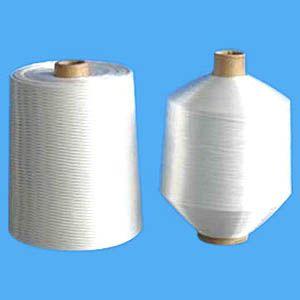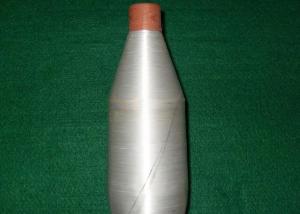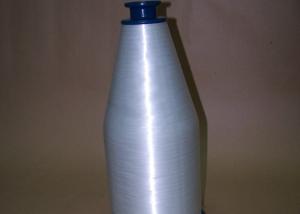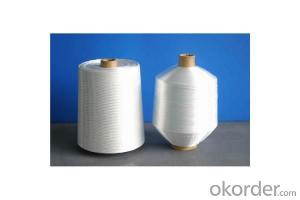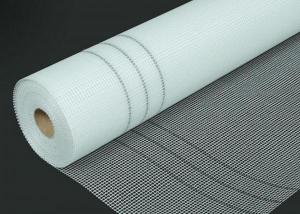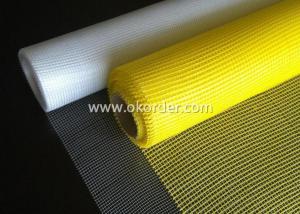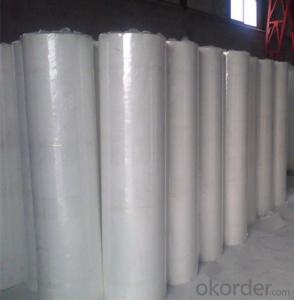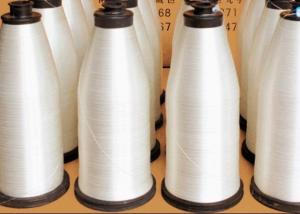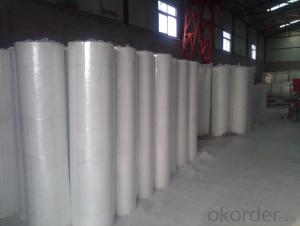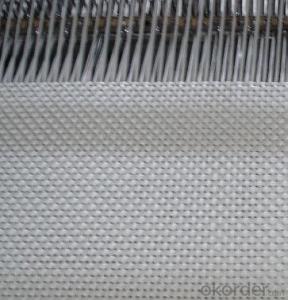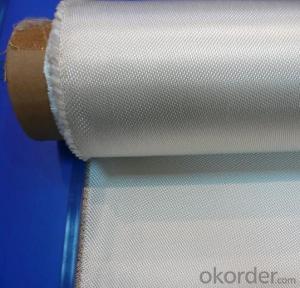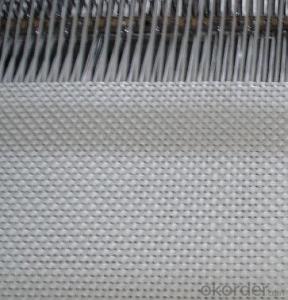Continuous Glass Fiber Yarns Single Fiber Daimeter of 9 Microns and Below
- Loading Port:
- Shanghai
- Payment Terms:
- TT or LC
- Min Order Qty:
- 1000 kg
- Supply Capability:
- 1000000 kg/month
OKorder Service Pledge
OKorder Financial Service
You Might Also Like
Product Description:
Yarn products mainly refer to continuous glass fiber yarns with a single fiber diameter of 9 microns and below.
According to the use, it can be divided into electronic grade fine yarn and industrial grade fine yarn, and according to the type of sizing, it can be divided into starch type and enhanced type.
The diameter of continuous glass fiber yarn is mainly 5-9 microns, the surface of the yarn is coated with a special sizing, which has a good protection effect on glass fiber bunching, less hairiness during deweaving, excellent textile performance, the sizing is easy to desize after the yarn is finished weaving, the decomposition temperature is low, the final ash residual is low, and the fabric is white and flat after desizing. Electronic grade yarn is the basic material used to produce electrically insulating glass fiber series products, and is an indispensable and irreplaceable high-quality structural material for copper clad laminates and printed circuit boards.
Product Features:
-High strength
-Less hairiness
-Good compatibility with resins such as epoxy and unsaturated polyester.
Packing:
with cartons
Storage:
In the absence of special requirements, it should be stored in a dry and ventilated room to prevent moisture. It is recommended to maintain the indoor temperature balance, and the optimal storage temperature is 15 °C ~ 35 °C. This product is best used within 12 months and should be kept in its original packaging before use. To ensure safety and avoid damage to the product, the stacking height of the pallet should not exceed two layers; When stacked two stories high, it is required to move the pallet on it correctly and smoothly.
- Q:Can fiberglass yarn be used for making clothing?
- Clothing can indeed be made using fiberglass yarn. Although not a commonly used material for clothing, fiberglass yarn possesses unique properties that make it appropriate for specific purposes. Fiberglass is renowned for its robustness, endurance, and ability to withstand high temperatures, chemicals, and fire. These qualities render it perfect for protective clothing utilized in industries like firefighting or welding, where safety is of utmost importance. Furthermore, blending fiberglass yarn with other fabrics can enhance their strength and durability, thus making it suitable for sportswear or outdoor apparel. However, it is crucial to mention that fiberglass yarn can feel rough and uncomfortable against the skin, which is why it is generally utilized as a reinforcing material rather than the primary fabric.
- Q:Can fiberglass yarn be used for making artificial flowers?
- Yes, fiberglass yarn can be used for making artificial flowers. It can provide strength and durability to the flowers, making them last longer and withstand various environmental conditions. Additionally, fiberglass yarn can be easily shaped and molded into desired flower shapes, allowing for intricate and realistic designs.
- Q:What industries commonly use fiberglass yarn?
- Some industries that commonly use fiberglass yarn include automotive, aerospace, construction, marine, and electrical.
- Q:Can fiberglass yarn be used for making bedding?
- Yes, fiberglass yarn can be used for making bedding. However, it is not a common choice as fiberglass yarn is more commonly used in industrial applications such as insulation or reinforcement materials. Other materials like cotton, linen, or synthetic fabrics are typically preferred for making bedding due to their softer and more comfortable qualities.
- Q:How does the abrasion resistance of fiberglass yarn compare to other materials?
- The abrasion resistance of fiberglass yarn is generally considered to be superior to many other materials. It is highly durable and can withstand heavy wear and tear, making it an excellent choice for applications that require resistance to abrasion, such as industrial textiles or reinforcement in composites.
- Q:Is fiberglass yarn safe for skin contact?
- When used correctly, fiberglass yarn is safe to come into contact with the skin. It is a fabric that is made up of fine glass fibers woven together to create a strong and durable material. It is commonly used in insulation, textiles, and certain types of clothing. While fiberglass yarn does not pose immediate health risks when it touches the skin, it is important to be aware that prolonged exposure to the fibers can cause irritation and itching. This occurs because the tiny glass particles irritate the skin. In some cases, it can even lead to more severe allergic reactions. To reduce the risk of skin irritation, it is recommended to avoid direct and prolonged contact with fiberglass yarn. If you need to handle it or work with materials that contain fiberglass, it is advisable to wear protective clothing, such as gloves and long-sleeved shirts, to prevent direct contact with the skin. Furthermore, it is crucial to handle and clean fiberglass yarn properly to prevent loose fibers from becoming airborne. Inhaling these particles can be harmful to the respiratory system. Therefore, it is important to work with fiberglass yarn in well-ventilated areas or use appropriate respiratory protection if needed. In conclusion, fiberglass yarn is generally safe for skin contact as long as precautions are taken to minimize direct exposure and proper handling procedures are followed. It is always recommended to consult the manufacturer's instructions and take necessary safety measures to ensure the safe use of fiberglass yarn.
- Q:Can fiberglass yarn be used in electrical cables?
- Yes, fiberglass yarn can be used in electrical cables. It is commonly used as a reinforcing material in cable insulation to provide strength, durability, and resistance to heat and fire.
- Q:Is fiberglass yarn resistant to electrical conductivity?
- Fiberglass yarn is, without a doubt, resistant to electrical conductivity. It is worth noting that fiberglass is a material that lacks conductivity, thus it does not readily permit the passage of electric current. This is due to the composition of fiberglass, which consists of glass fibers that possess limited electrical conductivity. Consequently, fiberglass yarn does not possess the ability to conduct or transmit electrical energy, rendering it a highly suitable option for applications related to electrical insulation.
- Q:How does fiberglass yarn affect the thermal conductivity of a product?
- Fiberglass yarn has a low thermal conductivity, which means it acts as a good insulator. When used in a product, it reduces the transfer of heat, making the product more energy efficient and providing better insulation against temperature changes.
- Q:How does fiberglass yarn perform in corrosion resistance?
- Fiberglass yarn is highly resistant to corrosion. Due to its composition, which includes a high percentage of glass fibers, it is inherently resistant to chemical degradation and rust. This makes fiberglass yarn an excellent choice for applications where corrosion resistance is crucial, such as in the construction of pipes, tanks, and other industrial equipment. Additionally, fiberglass yarn is also resistant to UV radiation, moisture, and extreme temperatures, further enhancing its corrosion-resistant properties. Overall, fiberglass yarn is a durable and reliable material that performs exceptionally well in environments where corrosion is a concern.
1. Manufacturer Overview |
|
|---|---|
| Location | |
| Year Established | |
| Annual Output Value | |
| Main Markets | |
| Company Certifications | |
2. Manufacturer Certificates |
|
|---|---|
| a) Certification Name | |
| Range | |
| Reference | |
| Validity Period | |
3. Manufacturer Capability |
|
|---|---|
| a)Trade Capacity | |
| Nearest Port | |
| Export Percentage | |
| No.of Employees in Trade Department | |
| Language Spoken: | |
| b)Factory Information | |
| Factory Size: | |
| No. of Production Lines | |
| Contract Manufacturing | |
| Product Price Range | |
Send your message to us
Continuous Glass Fiber Yarns Single Fiber Daimeter of 9 Microns and Below
- Loading Port:
- Shanghai
- Payment Terms:
- TT or LC
- Min Order Qty:
- 1000 kg
- Supply Capability:
- 1000000 kg/month
OKorder Service Pledge
OKorder Financial Service
Similar products
New products
Hot products
